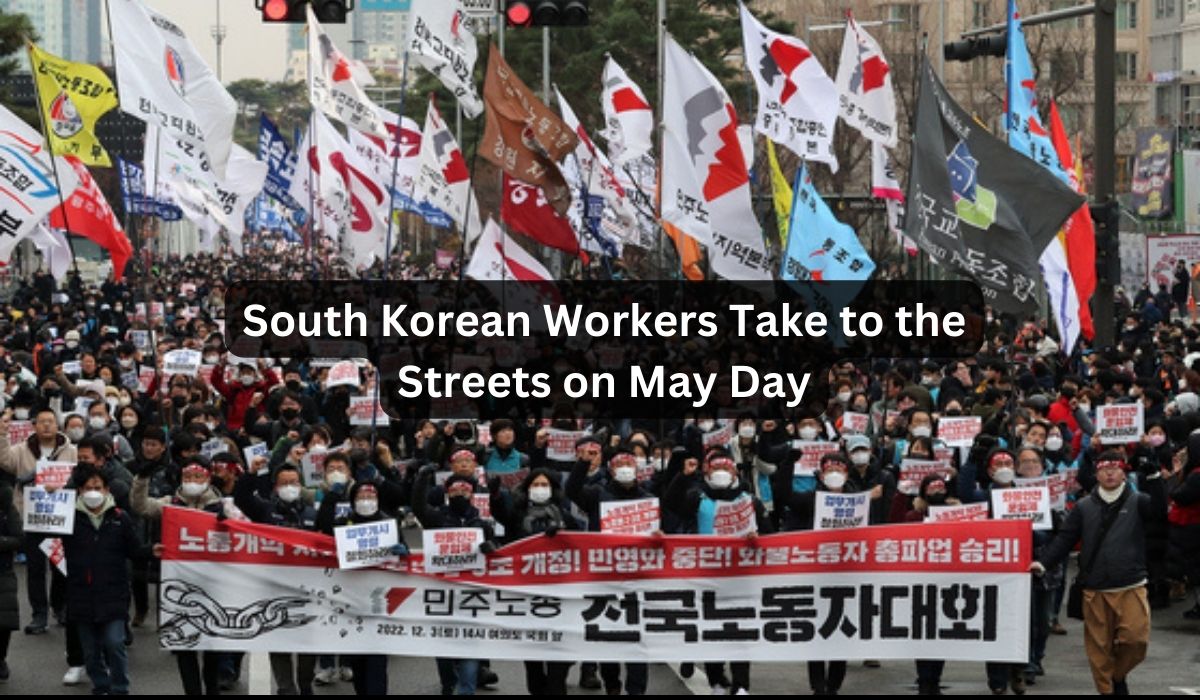On May 1st, commonly referred to as International Workers’ Day or May Day, there was a notable increase in demonstrations worldwide. In Seoul, the capital city of South Korea, numerous workers assembled to express their dissatisfaction with the existing labor rights and demanded substantial enhancements.
The Korean Confederation of Trade Unions (KCTU) orchestrated this protest to draw attention to the mounting frustration experienced by South Korean workers, particularly about the policies implemented by the conservative Yoon Suk-yeol government. According to the report, the gathering attracted a crowd of around 25,000 participants who expressed their discontent through enthusiastic cheers, waving flags, and banners that conveyed their dissatisfaction with the prevailing labor conditions.
Union Leaders Target Government Policies
The government policies have become the target of criticism by union leaders, with the KCTU, South Korea’s largest trade union federation, directing their disapproval towards President Yoon Suk-yeol’s administration.
During a rally, speakers accused the government of prioritizing the interests of big businesses over the rights of workers. Yang Kyung-soo, the leader of the KCTU, emphasized the negative impact of the government’s actions on laborers, urging for a revision of labor policies and a focus on the well-being of workers.
This rally organized by the KCTU reflects the growing discontent among South Korean workers towards the conservative Yoon Suk-yeol government’s policies.
South Korean Workers Demands
The rally centered on a chorus of demands for enhanced labor rights. Protesters emphasized key issues, including:
1. Wage Stagnation: South Korea has experienced a prolonged period of stagnant wages, resulting in income growth lagging behind the increasing cost of living. This has imposed a significant burden on working families, especially low-wage earners. Rally participants called for a substantial raise in the minimum wage to ensure a more sustainable livelihood.
2. Erosion of Worker Protections: Concerns were raised about recent government policies perceived as weakening worker protections. One particular issue was the rejection of a bill aimed at restricting companies’ ability to seek damages from union strikes. Workers view this as a move towards limiting their right to collective bargaining.
3. Contractualization and Job Insecurity: The rise in contract-based employment and the lack of job security were also major concerns. Workers demanded reforms that would encourage stable job opportunities and provide stronger protections for workers under contractual agreements.
4. Safety Concerns: Workplace safety emerged as another significant issue. The rally highlighted recent incidents of worker fatalities and called for stricter safety regulations and enforcement mechanisms to establish a safer working environment.
Also, Read –American Novelist Paul Auster Dies at the Age of 77
South Korean May Day Rally Impact
The May Day rally in South Korea is not an isolated occurrence. Worker dissatisfaction is brewing in numerous countries across the globe. The combination of increasing inflation and stagnant wages is leading to economic difficulties for many individuals.
Moreover, the COVID-19 pandemic has revealed the weaknesses in labor markets, emphasizing the necessity for more robust social safety nets. These worldwide concerns amplify the demands of South Korean workers, integrating them into a broader discourse regarding the trajectory of work.



Leave a Comment